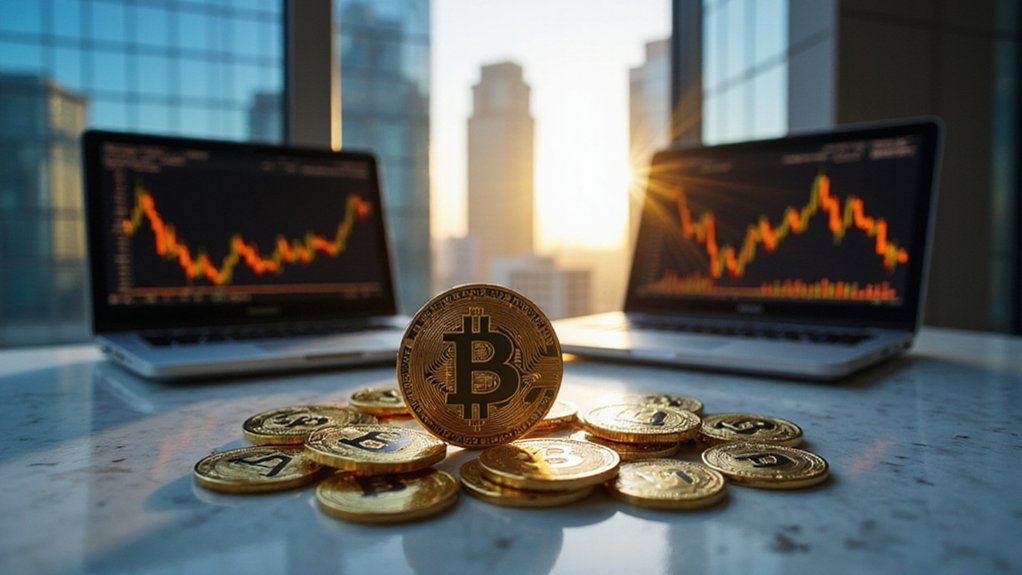A curious development in Hong Kong’s increasingly ambitious digital finance landscape has emerged as GF Securities—one of China’s heavyweight brokerages—partners with HashKey to launch tokenized securities denominated in offshore yuan, alongside their USD and HKD counterparts.
These “GF Tokens,” issued on HashKey Chain, represent what might charitably be called the latest chapter in real-world asset tokenization, where traditional financial instruments meet blockchain infrastructure with all the regulatory complexity that such unions inevitably entail.
The mechanics prove straightforward enough: investors receive daily-accruing interest with daily redemption privileges, while USD tokens benchmark against SOFR (because apparently even tokenized securities cannot escape the gravitational pull of Treasury collateral rates).
The offshore yuan component, however, signals something more intriguing—an expansion of investor access beyond mainland China’s borders into Hong Kong’s financial ecosystem, where regulatory clarity has become something of a competitive advantage.
Hong Kong’s Securities and Futures Commission has executed what amounts to a policy pivot, abandoning its 2019 classification of security tokens as complex products laden with restrictions.
The new guidance treats tokenized securities as traditional securities with a technological wrapper—a revitalizing pragmatic approach that acknowledges innovation without sacrificing oversight. This shift aligns with the regulatory principle of same activity, same risks applying consistent oversight standards regardless of technological implementation.
This regulatory evolution positions Hong Kong as a hub for crypto and digital finance, though whether this represents genuine breakthrough or sophisticated repackaging remains an open question. These blockchain-based securities utilize distributed ledgers to provide enhanced transparency and automated compliance features that traditional paper-based instruments cannot match. Intermediaries must now conduct thorough due diligence on issuers and their service providers to evaluate risks arising from tokenisation arrangements.
The target audience reveals the initiative’s conservative underpinnings: professional investors and high-net-worth individuals, carefully excluding retail participation in accordance with SFC risk management protocols.
Institutional investors gain portfolio diversification tools while wealthy clients access yield-generating products that promise enhanced transparency and near-instant settlement through blockchain infrastructure.
GF Securities claims first-mover advantage in digital finance, though such assertions carry inherent skepticism given the crowded landscape of tokenization experiments.
The broader implications center on offshore yuan’s growing international acceptance and Hong Kong’s systematic construction of a tokenized securities ecosystem.
Whether this development represents revolutionary progress or evolutionary refinement depends largely on adoption rates among the carefully curated investor base—and whether the promised benefits of reduced intermediaries and enhanced liquidity materialize beyond theoretical projections.









